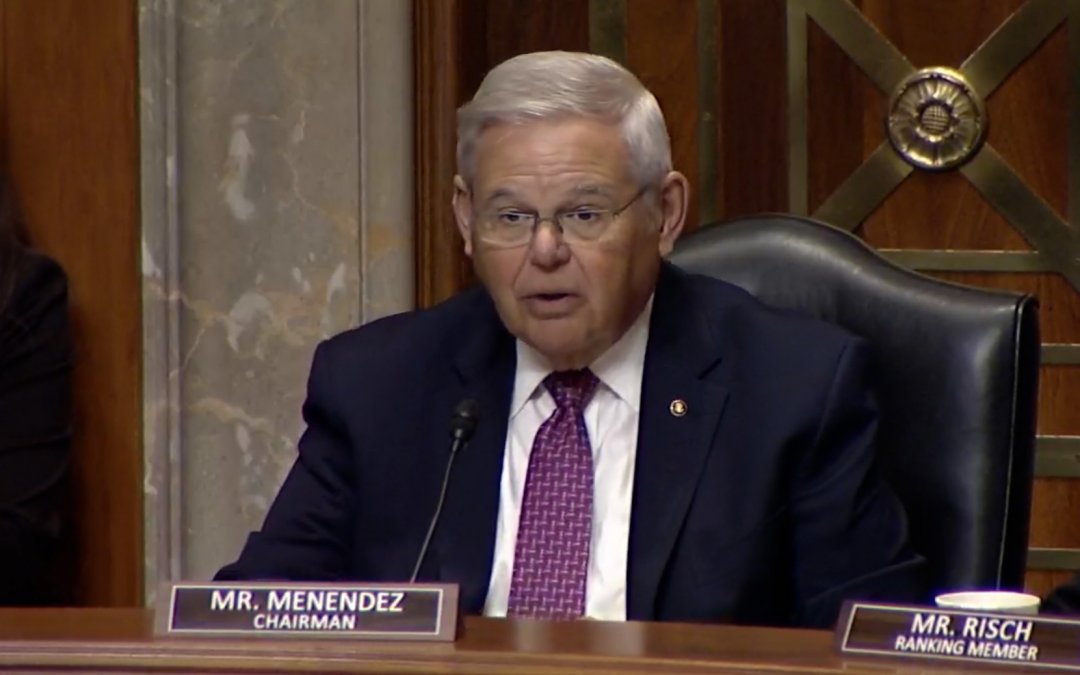WASHINGTON – The State Department strategically announced Thursday it was imposing sanctions on more than 40 groups linked to Russia’s mercenary outfit Wagner Group as senators demanded action in a separate meeting.
Victoria Nuland, undersecretary of state for political affairs, told the senators that the sanctions were coming during her testimony before a Senate Foreign Relations Committee hearing focused on countering Russian aggression.
Still, both Republicans and Democrats on the panel called for stronger actions in support of Ukraine.
Foreign Relations Committee Chairman Bob Menendez (D-N.J.) pleaded for increasing sanctions against China, arguing that the country must be held accountable for aiding Russia to “continue its onslaught of Ukraine” by sending Russia dual-use technology that has been critical for missile guidance systems.
“It seems to me that we should not forsake the potential sanctions against China if it is providing critical assistance,” he said.
Only one of the sanctions currently announced Thursday target China, Nuland admitted.
After much grilling by Menendez, Nuland agreed with the senator, pledging that the administration would impose sanctions under the Magnitsky Act “in a very short time.” She was referring to the law passed by Congress requiring the president to impose sanctions against foreign individuals who have committed human rights violations or been involved in significant corruption.
The latest sanctions against Wagner and its head, Yevgeniy Prigozhin, come after the administration last week designated the group as a “transnational criminal organization.” The Treasury Department also announced new financial sanctions on Thursday against Wagner and its leaders.
Sen. James Risch (R-Idaho), the ranking member of the committee, quickly steered the conversation toward the Biden administration’s announcement Wednesday that it would provide 31 of its powerful M1 Abrams tanks to Ukraine.
Risch scolded the administration for taking too long to agree to the move, noting that the tanks would not be in place before any planned spring offensive against Russia.
“Through all of this we have been pressing the administration to do things and they usually do the right thing. But it takes forever to get there,” Risch said. “As a result of that, there is a great loss on the battlefield and lives lost in the meantime.”
In an interview outside the hearing, Menendez said the time it took to come to the decision was necessary.
“When we say we are hesitant, we make an analysis, we just don’t say you ask and you get right away,” the senator said.
Sen. Tim Kaine (D-Va.) held a more generous opinion saying in an interview after the hearing: “We are not making a decision about what they need. We are listening to them and we have great communication with the Ukrainian defense forces.” He even suggested that he may support sending fighter jets to Ukraine, a move that would likely be viewed as a major escalation by the U.S.
In conjunction with the Biden administration, Germany also committed to sending 14 of its Leopard 2 tanks and approved shipments of the tanks from other countries.
Russia has dismissed the power of the additional weapons being sent. “It overestimates the potential it will add to the Ukrainian army,” Kremlin spokesman Dmitry Peskov during a daily briefing on Wednesday. “These tanks burn just like all the others.”
Sen. Ben Cardin (D-Md.), however, challenged Russia’s bravado.
“There is no question – these tanks will be extremely helpful for Ukraine not only to defend itself but to retake territory that’s currently controlled by the Russians,” Cardin said in an interview with Medill News Service.


